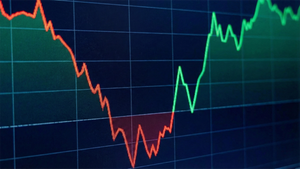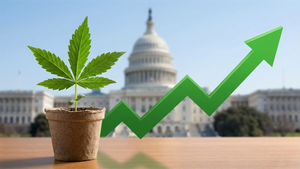SOURCE: Force for Good
DESCRIPTION:
LONDON, September 17, 2021 /3BL Media/ - The United Nations Sustainable Development Goals (UN SDGs) face a financing gap that has soared to up to US$100 trillion in the wake of COVID-19 and other urgent global challenges, according to a new report by Force for Good in collaboration with the UN and other organizations.
The SDGs are critical targets adopted by all UN member states and span every aspect of sustainability, including the environment, education, equality, health, and governance. The Capital as a Force for Good report shows that additional annual funding worth roughly a tenth of global economic output will be needed every year to meet the SDGs by the deadline of 2030.
Within the financial sector, leading institutions have significantly increased funding, committing US$9.5 trillion until 2030 and deploying a record US$2.1 trillion in 2020. US$88 trillion in managed or owned assets are now committed to net zero, while 20% of total assets or US$33 trillion now actively incorporate ESG into investment decision-making.
However, current funding of the SDGs by these financial institutions highlights some imbalances to be addressed.
- Forty-four percent of the total current spending is focused on climate change, which constitutes roughly twenty percent of the funding requirement across all the SDGs
- Thirty-two percent is focused on human, economic, and social SDGs, which represent almost half of the funding need
- Most of the capital is focused on advanced economies in an effort to address pressing local issues, meaning that developing countries still have the biggest financial shortfalls
Within the financial sector, a greater commitment to sustainability has also been associated with greater returns to shareholders, with the most advanced institutions significantly outperforming the sector average return over the past five years. This points to a leadership group that recognizes that innovating to do good makes them more relevant and resilient and may deliver superior shareholder returns going forward. However, all institutions will have to boost their commitments significantly if the goals are to be met, according to the report.
The full report, based on extensive analysis and engagement with the world’s leading financial institutions, has been published at www.forcegood.org/report-2021, including an executive summary, ahead of the high-level General Debate at this year’s UN General Assembly starting on September 21 in New York. The report is now in its second edition, with the first having been published last year. The Capital as a Force for Good Initiative will also convene key stakeholders at this year’s UNCTAD World Investment Forum and explore further solutions to narrow SDG financing gaps.
Ketan Patel, Chairman of Force for Good and CEO and Co-Founder of Greater Pacific Capital, says: “The financial sector is playing a rapidly expanding role in financing the SDGs and the transition to a sustainable digital future. However, with less than ten years to go, there is a pressing need to explore even bigger and more radical solutions than those being deployed today. Closing the funding gap needs to become a compelling business opportunity, but that will not be possible without a new understanding between all stakeholders. The UN is critical to making that happen.”
Chantal Line Carpentier, Chief, UN Conference on Trade and Development in the New York Office of the Secretary-General, says: “Humanity is at a crossroads. More than ever, all stakeholders must partner to ensure this crisis is the beginning of a new economics for sustainable development with prosperity for all. The financial sector is key to achieve the transition needed. The Capital as a Force for Good initiative has been an important voice in highlighting how finance industry leaders have engaged to tackle the world’s biggest challenges. Its convening of key stakeholders at this year’s UNCTAD World Investment Forum aims to grow their commitments and fill the large and growing SDG financing gap.”
About Force for Good
Force for Good’s mission is to mobilize capital, resources, and ideas as a force for good in the world at a time of profound change. The organization’s Capital as a Force for Good Initiative is guided by an advisory council consisting of global policy, business and social impact leaders and engages the world’s leading financial institutions and other stakeholders, to promote sustainable development through the deployment of capital and solutions that address the world’s greatest issues and enable the transition to a better future.
The initiative publishes a report entitled Capital as a Force for Good assessing the role of capital in addressing the world’s most pressing issues. The report is now in its second edition and is a result of collaboration between the United Nations and the initiative, and the efforts of the many financial institutions and organizations actively engaging and supporting it. For further details, please visit www.forcegood.org.
Companies actively engaged include Bank of America, BlackRock, Bridgewater Associates, Citi, Credit Suisse, Fidelity Investments, First Abu Dhabi Bank, GIC Singapore, Goldman Sachs, Great-West Lifeco, HDFC Ltd, HSBC, Investec Group, Japan Post Holdings, JPMorgan Chase, Liberty Mutual Insurance Group, Lloyds Banking Group, Morgan Stanley, Nomura, Nordea, Northern Trust, OMERS, Putnam Investments, Schroders, State Street, UBS, Wellington, and others. The report includes over 100 financial institutions in total in the analysis.
Media Contact
Nick Rice, Brunswick Group
nrice@brunswickgroup.com
+1 347 720 2943
KEYWORDS: force for good





